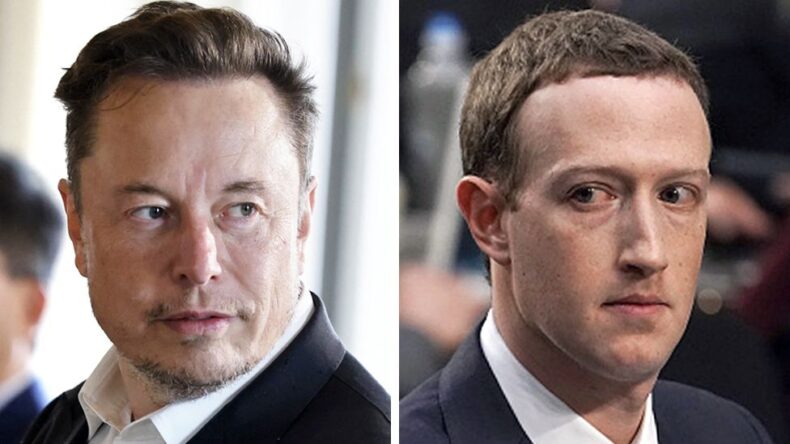Elon Musk and Mark Zuckerberg are titans in the fields of technology and innovation. Both men have gained enormous success and influence by propelling their respective firms, SpaceX and Facebook, to unprecedented heights. Their innovative techniques and opposing ideologies have sparked a long-running feud that goes beyond business. This article dives into the epic rivalry (Mark vs Musk) between these two tech titans and investigates the fundamental elements that fuel their rivalry. The social media moguls have been egging each other into a mixed martial arts cage match in Las Vegas since June.
The Battle of Visions – Mark vs Musk
The fundamental contrast in their visions is at the heart of Musk and Zuckerberg’s quarrel. Elon Musk, SpaceX’s CEO, is a staunch supporter of space exploration and interplanetary colonization. He envisions a future in which mankind becomes a multi-planetary species, preventing the extinction of life on Earth. In contrast, Mark Zuckerberg, CEO of Facebook (now Meta), has promoted global communication and digital interconnection through social media platforms.
Clash of Cultures – From Silicon Valley to the Cosmos
Musk and Zuckerberg come from very different backgrounds and ideas, which are mirrored in the cultures of their respective firms. SpaceX exemplifies the entrepreneurial ecosystem of Silicon Valley, where innovation and disruption are the norms. Facebook’s journey, on the other hand, has been defined by scandals regarding user privacy and misinformation, leading to critiques of its corporate ethics.
Breakthrough Technologies – Rockets and Virtual Realities
The area of cutting-edge technologies is one of Musk and Zuckerberg’s major battlegrounds. While SpaceX has successfully launched reusable rockets and pushed the bounds of space exploration, Meta has been significantly investing in virtual reality (VR) and augmented reality (AR) technologies. Each tech titan sees its inventions as critical to influencing the future, resulting in strong competition in their respective industries.
The Social Media Space Race
The Mark vs Musk feud has spread to the sphere of internet access in recent years. SpaceX’s Starlink project seeks to provide worldwide high-speed internet via a satellite constellation, competing with Meta’s Internet.org program, which seeks to bring internet connectivity to underprivileged areas. Both programs aim to overcome the digital divide, but their methodologies and technologies are vastly different, exacerbating the conflict.
Public Showdowns
Musk and Zuckerberg’s public animosity has frequently played out on social media platforms and in the media. Musk’s unvarnished and occasionally provocative tweets have gotten a lot of attention, but Zuckerberg’s more measured approach has been viewed as calculated. These conversations have captivated the public’s attention, bringing them into the two titans’ personal and professional conflict. In a post on his platform X, formerly Twitter, he wrote that his proposed cage fight with Meta CEO Zuckerberg would be live-streamed on social media platform X.

Source – Times of India
Impact on Society
As their war continues, worries about the impact of Mark vs Musk actions on society surface. Supporters see Musk’s quest for renewable energy, space exploration, and self-driving cars as crucial steps toward ensuring humanity’s future. Critics, on the other hand, accuse him of exploitation of workers and privatization of space for personal advantage. Similarly, Zuckerberg’s vision of worldwide connectivity is being questioned due to worries about data privacy and the spread of misinformation.
The Future Awaits – A Duel with No End in Sight
Mark vs Musk rivalry shows no signs of abating as they continue to dominate headlines and dictate the future of technology. Their ongoing conflict reflects the tech world’s collision of philosophies, visions, and technology. The entire world is watching with bated breath as these two great minds compete for supremacy, each desperate to leave an indelible imprint on humanity’s path through the twenty-first century and beyond.













